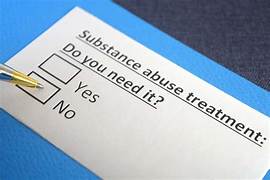
Substance abuse treatment is a multifaceted process that requires a combination of medical, psychological, and social interventions. Each individual’s journey is unique, and effective treatment must address the complex interplay of physical dependence, mental health challenges, and social factors that contribute to substance use disorders. A comprehensive approach, from detoxification to long-term recovery, offers the best chance for sustained sobriety and a return to a healthy, fulfilling life.
Detoxification: The First Step
Detoxification, or detox, is the initial phase of substance abuse treatment. It involves the medical management of withdrawal symptoms that occur when an individual stops using a substance. Withdrawal symptoms vary depending on the substance and the severity of the addiction, ranging from mild discomfort to life-threatening complications.
In a supervised detox program, healthcare professionals monitor the patient’s physical and psychological well-being, providing medications to alleviate withdrawal symptoms and reduce cravings. For example, medications like methadone or buprenorphine are used for opioid addiction, while benzodiazepines may be prescribed for alcohol withdrawal. A safe and supportive detox environment is critical, as it sets the foundation for the next stages of treatment.
Rehabilitation: Addressing Underlying Issues
Once detox is complete, the focus shifts to rehabilitation, where individuals address the psychological and behavioral aspects of addiction. Rehabilitation programs can take place in residential (inpatient) settings or on an outpatient basis, depending on the individual’s needs and the severity of their addiction.
In rehab, patients participate in various therapies designed to uncover and address the root causes of their substance use. Common therapeutic approaches include:
- Cognitive-Behavioral Therapy (CBT): Helps individuals identify and change patterns of thought and behavior that contribute to substance use.
- Motivational Interviewing (MI): Encourages individuals to find internal motivation for change and commit to recovery goals.
- Family Therapy: Engages family members in the recovery process, helping to rebuild relationships and create a supportive home environment.
- Group Therapy: Provides a sense of community and shared experience, helping individuals learn from others in similar situations.
Medication-Assisted Treatment (MAT)
For many individuals, medication-assisted treatment is an essential component of recovery. MAT combines FDA-approved medications with counseling and behavioral therapies to provide a “whole-patient” approach. This method is particularly effective for opioid and alcohol use disorders, as medications like naltrexone, methadone, and acamprosate can reduce cravings and prevent relapse.
Relapse Prevention and Aftercare
Recovery from substance abuse is an ongoing process that extends far beyond formal treatment. Relapse prevention programs and aftercare planning play a critical role in helping individuals maintain sobriety. Aftercare often includes:
- Sober Living Homes: Structured environments that provide support as individuals transition back to independent living.
- Support Groups: Groups like Alcoholics Anonymous (AA) or Narcotics Anonymous (NA) offer peer support and accountability.
- Continuing Therapy: Regular counseling sessions help individuals address new challenges and reinforce coping strategies.
The Importance of a Holistic Approach
Comprehensive substance abuse treatment goes beyond addressing the addiction itself. It considers the individual’s overall well-being, including their mental health, physical health, and social relationships. Holistic approaches such as mindfulness, exercise, and nutritional support can complement traditional therapies and improve outcomes.
Conclusion
Substance abuse treatment is not a one-size-fits-all process. From detox to long-term recovery, a comprehensive approach that integrates medical care, psychological therapy, and social support offers the best chance for lasting success. By addressing the underlying causes of addiction and equipping individuals with the tools to maintain sobriety, these programs help pave the way to a healthier, more fulfilling life.